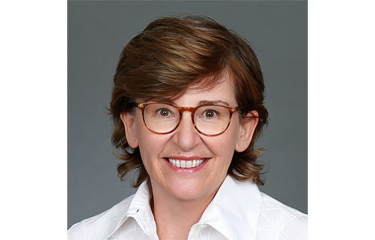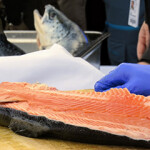WSI President Marie Christine Monfort makes International Women’s Day plea

As women all over the world celebrated International Women’s Day on Sunday, 8 March, attending rallies, conferences, and gatherings, Marie Christine Monfort, president of the International Association for Women in the Seafood Industry (WSI), used the day for a call to action.
“We call upon the responsible international organisations and national institutions, professional associations, trade unions, and private corporations to end IIU, and address gender equality in a constructive way. And by IIU, we mean the invisible, ignored, and unrecognized (IIU) women in the seafood industry,” Monfort told SeafoodSource.
Monfort said she is proud to take up the cause to have IIU recognized as a problem that is as serious as illegal, unreported, and unregulated (IUU) fishing.
“For decades the fishing community has deployed tremendous energy to alert and fight against IUU in the fishing industry, at an estimated cost to date of between USD 10 billion and USD 20 billion [EUR 8.8 billion and EUR 17.5 billion]. But IIU has received very little attention, despite its great social, environmental and economic cost,” she said. “On this International Women’s Day, we invite our community, stakeholders and leaders to appropriate IIU with the same strength, concern, and budget resources that have been given to IUU.”
Women represent half of the seafood workforce worldwide, yet the majority remain in the background, invisible, and beyond the attention of decision-makers, Monfort said. Many work unpaid in family enterprises, yet their valuable contribution behind the scenes goes unrecognized, she added.
“They may not work at the ‘sharp’ end of the business – although an increasing number of women do – but in small family companies it is generally the women who pull all the threads together, taking care of paperwork, ordering, sales, net making or mending, etcetera,” Monfort said.
The problem is global, and where women’s contributions to and knowledge of the industry are not acknowledged, they can be at a disadvantage when policy and management decisions are made, Monfort said. They may be overlooked for a fishing or aquaculture license for example, or denied access to new opportunities, or to financial assistance.
“Research has shown that wages are a source of bargaining power, both in the private sphere and in the workplace. By being recognized through a salary, women gain prestige, and are better recognized and valued by their communities,” Monfort said.
In addition, stereotypes, social norms, and laws may prevent women from accessing some jobs. Fisherwomen, for example, are not recognized as professionals in many countries and cannot become members of professional organizations. Many women work in the seafood processing industry, and may be subjected to abusive treatment, violence, sexual harassment, and poor and unsafe working conditions. At the other end of the scale, women may be denied access to board or CEO positions, Monfort said.
“In November 2019, a key message from the FAO International Symposium on Sustainable Fisheries was that women must be made visible, included, and their knowledge and value recognized. FAO and its member countries have the opportunity to act on this outcome at the forthcoming Committee on Fisheries and Aquaculture 2020 Meeting, and for the first time ever, put gender equality on its agenda,” Monfort said.
Photo courtesy of Marie Christine Monfort/LinkedIn






Share